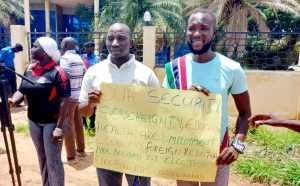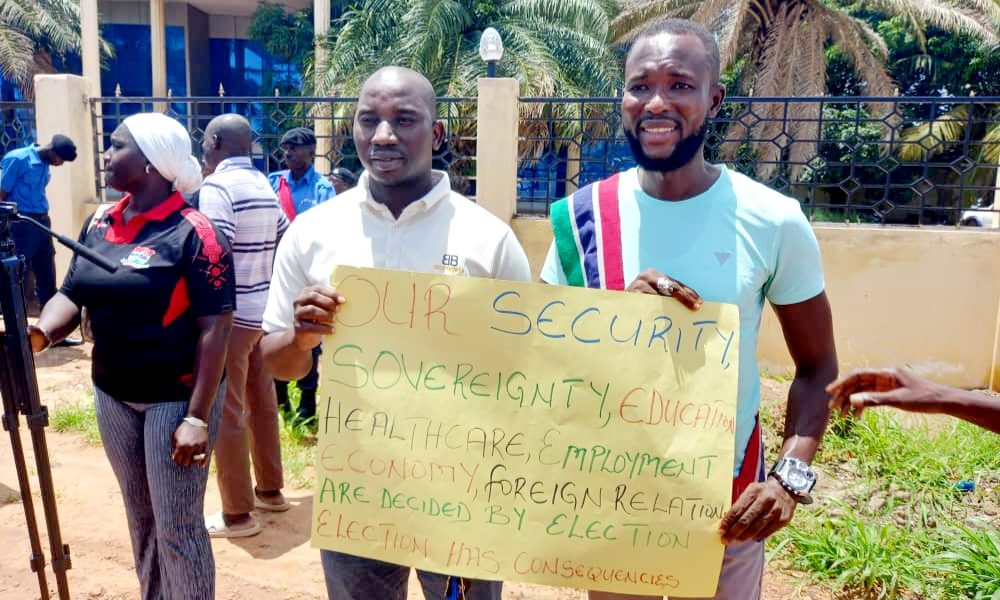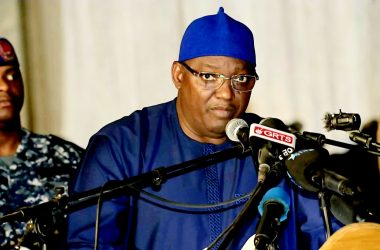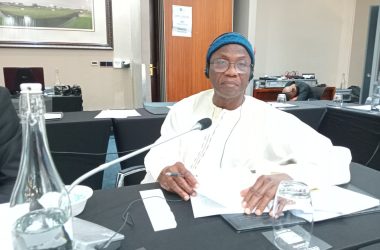Hon. Momodou Lamin Bah, National Assembly Member for Banjul North, has criticised the Gambia Immigration Department (GID) and the government for issuing national identity cards to Gambians in Mauritania and Gabon, describing the move as unnecessary and poorly timed.
The lawmaker spoke to JollofNews on Saturday during a protest organised by the United Democratic Party (UDP) youth wing at the Independent Electoral Commission (IEC) headquarters in Kanifing.
The protesters demanded that the IEC oppose the government’s directive to provide ID cards to Gambians living abroad, calling it a decision that could compromise the integrity of upcoming elections.
Hon. Bah said the government should focus on fixing the ID card backlog at home instead of expanding issuance to the sub-region.
“It takes months for people here in The Gambia to get an ID card. This makes no sense,” he said. “The Gambia Immigration Department is bragging about completing the issuance of ID cards in one country and now moving to another, while Gambians here are still waiting.”
The Banjul North MP argued that passports, not ID cards, should be the priority for Gambians living outside the country. He also questioned whether the program would be extended to Gambians in Europe, the U.S., and Asia.
Hon. Bah claimed that Gambians in Mauritania have complained about their situation, saying those who obtained ID cards still face difficulties. He expressed suspicion over the timing of the exercise, with elections scheduled for next year and a supplementary voter registration expected.

“Issuing ID cards abroad can create suspicions of possible electoral fraud in the 2026 polls,” he warned, adding that the action “does not represent the Gambian people.”
When asked by JollofNews what steps he would take, Hon. Bah said the National Assembly is in recess but assured that the issue will be addressed when lawmakers return.
The GID recently announced it had completed ID card issuance in Mauritania and is now extending the exercise to Gabon. Opposition parties and civil society groups have raised concerns about the program’s legality and potential political implications.





